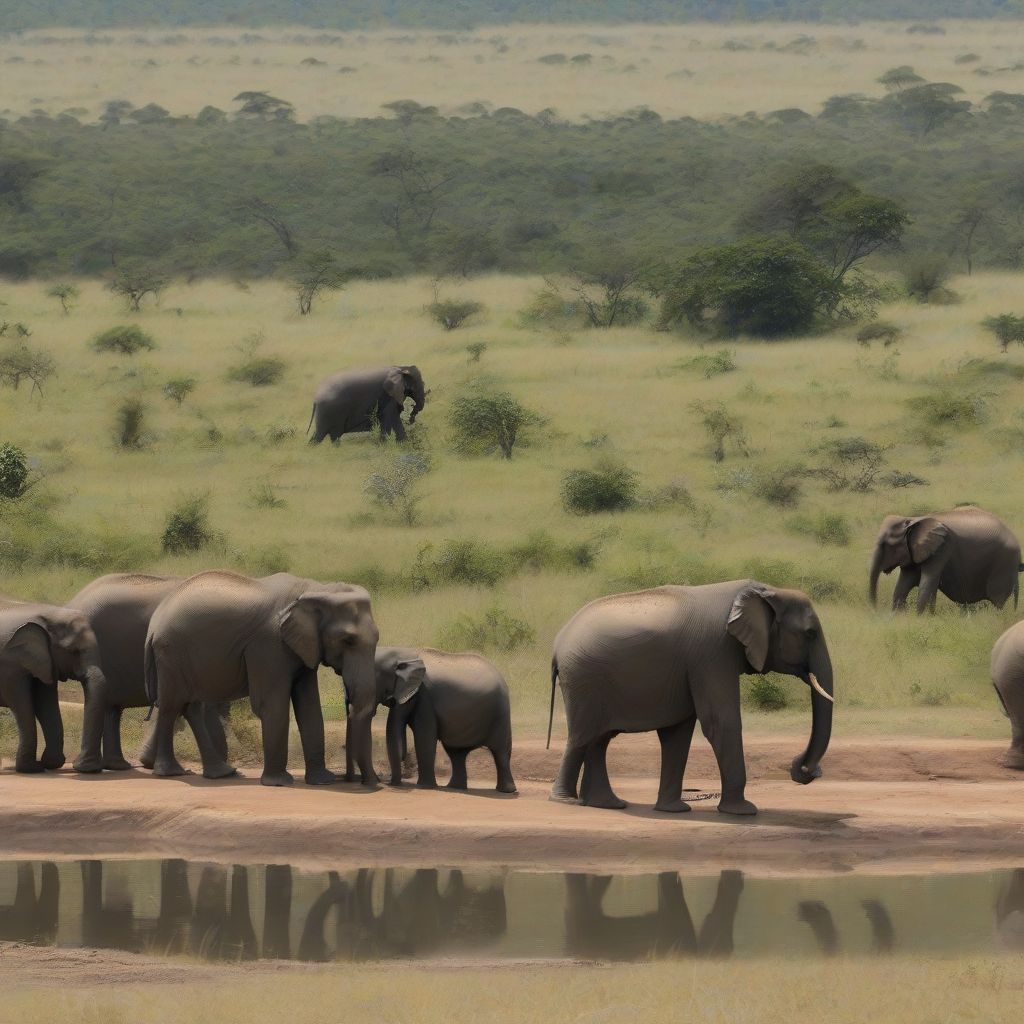Have you ever dreamt of exploring lush rainforests, coming face-to-face with majestic elephants, or snorkeling in vibrant coral reefs? Traveling to witness the beauty of wildlife is an incredible privilege, but it comes with a responsibility to ensure we’re not contributing to their harm. Before embarking on your next adventure, take the time to educate yourself about wildlife conservation. Not only will it enhance your experience, but you’ll become a more conscious and responsible traveler.
Understanding the Importance of Wildlife Conservation
Wildlife plays a vital role in maintaining the balance of our planet’s ecosystems. From pollinating plants to controlling pests, each species contributes to the intricate web of life. However, factors like habitat loss, climate change, poaching, and the illegal wildlife trade threaten their survival.
Educating yourself about these threats and the importance of conservation is the first step towards becoming a responsible traveler. By understanding the challenges facing wildlife, you can make more informed decisions about your travel choices and support efforts to protect them.
Research Your Destination
Before you pack your bags, delve into the specific conservation issues present at your destination. What are the endangered or vulnerable species in the region? Are there any ongoing conservation projects you can learn about or support?
For instance, if you’re traveling to Borneo, you’ll discover that orangutans are critically endangered due to deforestation for palm oil plantations. Armed with this knowledge, you can choose tour operators committed to sustainable practices and avoid products containing palm oil.
Seek Out Reputable Sources of Information
The internet is a vast resource for information, but not all sources are created equal. When researching wildlife conservation, rely on reputable organizations like:
- World Wildlife Fund (WWF): WWF is a global conservation organization working to protect endangered species and their habitats.
- Conservation International: This organization focuses on protecting biodiversity hotspots and providing sustainable solutions for local communities.
- The Jane Goodall Institute: Founded by renowned primatologist Jane Goodall, this institute is dedicated to chimpanzee conservation and environmental education.
- Local Conservation Groups: Look for organizations specifically working in the region you’re visiting. They often provide valuable insights and firsthand knowledge.
By consulting these sources, you can ensure you’re accessing accurate and reliable information.
Be a Responsible Tourist
Your actions as a tourist can significantly impact wildlife and their habitats. Here are some tips for responsible wildlife tourism:
- Choose ethical wildlife experiences: Avoid activities that exploit or harm animals, such as riding elephants, swimming with dolphins in captivity, or posing with wild animals for photos. Opt for tours and sanctuaries that prioritize animal welfare and conservation.
- Keep a respectful distance: Observe animals from afar and use binoculars or zoom lenses for close-ups. Getting too close can stress animals and disrupt their natural behavior.
- Don’t feed wildlife: Feeding wild animals can alter their foraging habits, make them dependent on humans, and even be harmful to their health.
- Stay on designated trails: Wandering off marked paths can damage fragile ecosystems and disturb wildlife habitats.
- Minimize your environmental impact: Reduce your carbon footprint by choosing eco-friendly accommodations, using reusable water bottles and bags, and supporting local businesses.
Support Conservation Efforts
Your journey to becoming a wildlife conservation advocate doesn’t end with your trip. Here are ways to continue supporting conservation efforts:
- Donate to conservation organizations: Many reputable organizations rely on donations to fund their crucial work. Choose an organization aligned with your values and contribute financially to support their efforts.
- Volunteer your time: If you’re passionate about wildlife, consider volunteering your time to a local conservation group or sanctuary.
- Spread awareness: Share your knowledge and experiences with others. Encourage friends and family to become more conscious travelers and advocate for wildlife conservation.
 Responsible Wildlife Tourism
Responsible Wildlife Tourism
Conclusion
Educating yourself about wildlife conservation before traveling is not just an option; it’s a responsibility. By taking the time to learn about the challenges facing wildlife and making conscious choices, you can contribute to their protection and ensure their survival for future generations. Remember, even small actions can make a big difference. Let’s travel responsibly and be advocates for the incredible creatures that share our planet.
[amazon bestseller=”Wildlife Conservation”]
